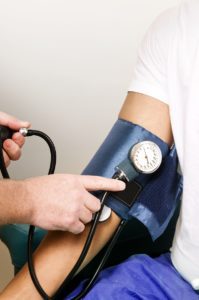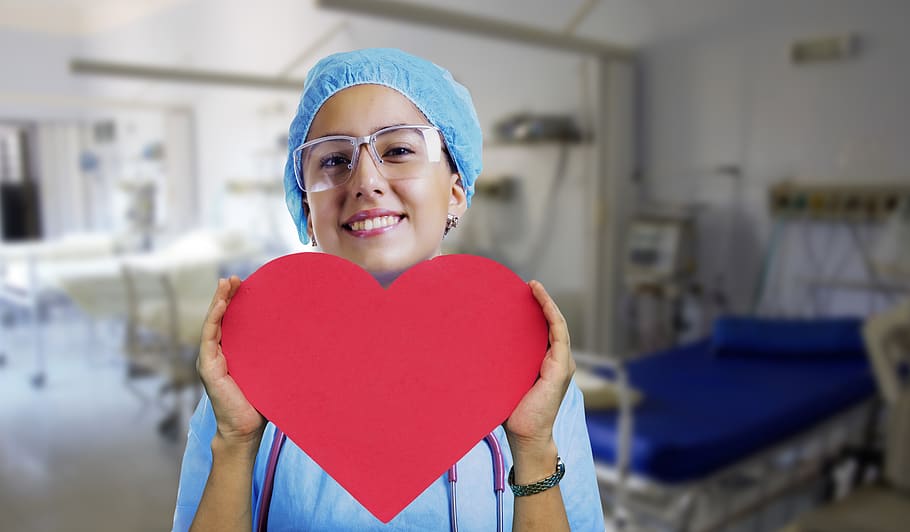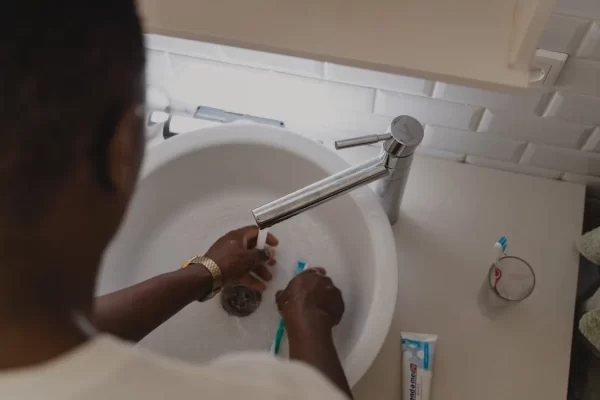Blood pressure is the measurement of blood-force that flows through the walls of the arteries. Serious damage to the blood vessels can be caused if the blood pressure is very high for a long time. The condition can lead to a vast range of complications and here we will find out how to reduce it. Heart problems can lead to strokes, kidney failure, heart attacks, loss of vision and many other health issues. This is what causes high blood pressure to be life-threatening. Let us find out how to prevent and manage high blood pressure.
Hypertension or high blood pressure can be controlled in many ways. Usually, you do not get any specific symptoms for high blood pressure. However, you can monitor your blood pressure regularly by taking preventive measures as and when needed. Centers for Disease Control and Prevention (CDC) has confirmed that in the United States 29% of the population has high blood pressure. This is approximately 75 million people and that is definitely an enormous amount.
As you go ahead in reading this article, you will get a vivid picture of what causes high blood pressure. Consequently, how you will treat it and also learn the levels of blood pressure that are considered to be healthy.
Table of Contents
What Causes High Blood Pressure
Blood is transferred, after purification from the heart to the rest of the body by blood vessels (which are known as arteries). The blood is pushed into your arteries when your heart beats. The force at which the blood flows through your arteries is known as blood pressure.
When the blood forces through the arteries are higher than usual it causes high blood pressure. This is also known as hypertension. Numerous things can lead to high blood pressure. If you come in for high blood pressure and it persists long, health disorders are inevitable. You need to have controlled blood pressure or else you make yourself more susceptible to have a heart attack and other medical complications. To know what is blood pressure, you need to know about the two types:
Primary Hypertension
The most prevalent type of high blood pressure is primary hypertension or also termed as essential hypertension. You tend to develop this type of blood pressure with age. The probability of it increases, according to the environment, the lifestyle you are creating for yourself. Further, as you age the recurring cyclic changes in your body can lead to primary hypertension.
Secondary Hypertension
Secondary hypertension is said to occur when you have existing health ailments. Medications for other health issues can also increase the chance of you having high blood pressure. Some of the health problems that lead to secondary hypertension are:
- Thyroid
- Kidney Failure
- Sleeping Disorders
- Endocrinal Imbalances
- External medications
What are the symptoms of high blood pressure?
Do you know why hypertension is often called ‘the silent killer’? Since most people do not get symptoms to have high blood pressure, regular monitoring and checking make it extremely important. In some cases, people complain of breathlessness, severe headaches or even nosebleeds. Then again, these symptoms can happen to other underlying problems and they can be both serious or non-serious. Typically, symptoms like these occur only when blood pressure is excessively high for a prolonged period of time.
What causes high blood pressure?
High blood pressure can be caused due to improper lifestyle, food-habits or other medications. Further, hypertension can occur with age or passed on genetically. Ask your doctor to help you find out what causes high blood pressure for you? Let us see some common factors that may cause hypertension:
- Chronic illnesses like diabetes, high cholesterol, kidney failure, and hormonal issues
- Diets that are high in fat, salt, and cholesterol
- Inadequate physical activity
- Obesity
- Age (Tendency to have high blood pressure increases with age)
- Having Stress
- Consumption of birth control pills
- Family History (Parents or other close relatives having hypertension)
- Consumption of Tobacco and Alcohol
- Race (Non-Hispanic black people are likely to have Hypertension than other races)
Diagnosis of High Blood Pressure
A blood pressure monitor is equipment by which blood pressure is measured. During all health check-ups, doctors monitor your blood pressure. A band (cuff) will be placed around your arm and a small pump along with a meter is attached to it. By squeezing the pump, you will get a feeling of the band to be filled with air, making it feel tight. Then, the squeezing is stopped and the meter is read.
The meter provides two numbers that are said to be your blood pressure. The systolic reading is the number that is at the top and diastolic reading is the number below. Your doctor will read out two numbers, for instance, 120/80. So, 120 is the systolic reading, the condition in which your heart squeezes out blood and the pressure is at its peak. The pressure at which your heart is filling itself with blood is the diastolic number, which is 80. When the levels show:
- 120 at the top and at 80 at the bottom is a normal blood pressure
- 120-139 at the top and 80-89 at the bottom is prehypertension
- 140-159 at the top and 90-99 at the bottom is stage1 high blood pressure
- 160 or higher at the top and 100 and over at the bottom is stage2 high blood pressure.
If you have high blood pressure, check it regularly. After you are 18years of age, monitor your blood pressure once in every two years. Regularize it if you have past history of hypertension.

Can you prevent high blood pressure?
If you are aware that improper lifestyle is the only reason for you to have hypertension, follow the steps below before it’s too late:
- Start losing weight
- Have proper food habits
- Stop smoking
- Regularly exercise
- Curb alcohol consumption
- Reduce salt intake
- Adapt to relaxation techniques
If you have other medical ailments or consume any medicine, speak to your doctor. Ask your doctor questions, like what causes high blood pressure? What are the effects? How can you control it?
The doctor will be able to answer all your question marks. Further, he/she will diagnose you properly and prescribe alternative medicines. Alongside, treating your illnesses can lower the levels of blood pressure, like controlling your diabetes or creatinine levels.
Treatments for high blood pressure
Change in lifestyle can reduce high blood pressure and lower the risk of heart attacks. In addition to that, doctors can give you medicines to treat high blood pressure. These medicines are known as antihypertensive medicines.
Reducing the blood pressure to normal levels is the fundamental goal. The doctor prescribes medicines to you provided blood pressure levels are not controlled by lifestyle changes. The medicines given to you are easy to take and has rare side effects. Once your blood pressure is controlled by medicines, you have to continue it all your life. It often happens that you are given more than one medicine for high blood pressure. This is a very successful treatment doctor do all of over the world.
Note that, you cannot randomly stop your medicine without your doctor’s advice. Further, increasing the risk of having a heart attack or stroke.
How will you live with high blood pressure?
You need to put in a lifelong commitment to control high blood pressure. Regular monitoring and healthy lifestyles are required in order to maintain controlled levels of blood pressure.
In order to maintain that you may be asked by your doctor to visit the clinic often. At home, you need to keep a track of the blood pressure numbers for your doctor. Even pharmaceutical retail shops have the facility to measure your blood pressure, in case you do not have a machine at home. Several types of pressure monitoring machines are available now making it easier to keep a check. Some of them are automated arm blood pressure cuff and ambulatory blood pressure monitor (which you wear when you’re moving about).
What Causes Low Blood Pressure
When blood flows through the arteries slower than usual with each heartbeat it is called Hypotension or low blood pressure. Low blood pressure is less than 120/80. Consequently, making you feel dizzy and fatigued. Hypotension might also be a sign of an underlying illness. Systolic pressure or systole is the measurement of your blood pumping through the arteries, and diastolic pressure or diastole is the measurement for the periods of rest. Systole is when the heart supplies the body with blood and diastole when the heart is supplied with blood through the coronary arteries. The levels of hypotension are 90/60 or even lower.
What are the of causes hypotension?
Every individual has fluctuations in blood pressure. Hypotension usually does not have any discernible symptoms. But in certain conditions, if hypotension is left untreated it may become extremely dangerous. The possible conditions are:
- During pregnancy, there is an increase in demand for blood both, for the fetus and the mother.
- State of shock or weakness accompanying dehydration
- Blood loss due to injury
- Bloodstream infection
- Heart attacks and faulty valves cause impaired circulation
- An allergic reaction like anaphylactic shock
- Endocrinal disorders
Sometimes medicines itself can be the cause of hypotension. Heart problems are treated by nitroglycerine and beta-blockers. If you consume these medicines you may increase the risk of blood to drop. Moreover, medicines like diuretics, erectile dysfunctional and tricyclic antidepressant drugs also add to the list. People have low blood pressure for various unidentified reasons. Usually, this form of hypotension is not very harmful and is known as chronic asymptomatic hypotension.
What are the Symptoms of Hypotension?
When blood pressure drops down below 90/60, you may face hypotension. Many symptoms of hypotension may include:
- Tiredness
- Dizziness
- Clammy skin
- Lightheadedness
- Depression
- Blurry vision
- Unconsciousness
You may have symptoms that may vary from being mild to severe. Some may feel slightly uncomfortable while others might feel very sick.
What are the types of hypotension?
There are several different classifications that explain how you have hypotension and they are:
Orthostatic Hypotension
The occurrence of orthostatic hypotension takes place when you transit from sitting or standing up after lying down. This is familiarly seen at all ages.
Have you heard people saying, ‘seeing stars’? This happens when your body tries to adjust its position change causing brief periods of dizziness.
Postprandial Hypotension
Blood pressure falls right after you finish eating. This condition is postprandial hypotension, which is also similar to orthostatic hypotension. Elderly people who develop Parkinson’s disease have a higher risk of postprandial hypotension.
Neurally mediated Hypotension
Standing for prolonged hours can cause neurally mediated hypotension. Children are more likely to face this kind of hypotension than adults. If you face emotionally upsetting events, that could also cause a drop in your blood pressure.
Severe Hypotension
Organs function normally when they are provided with blood and oxygen. However, when your organs are not provided the same, shock occurs. This shock can lead to severe hypotension. You need to expeditiously treat severe hypotension or else it can be life-threatening.
Treatment for hypotension
Treatment depends on what causes low blood pressure. Further, treatments could also include medications for diabetes, infections or heart problems. If you are having diarrhea or vomiting, hydrate yourself with plenty of fluids. Otherwise, dehydration can lead to hypotension.
Keeping yourself hydrated can prevent and also treat neutrally mediated hypotension. If you are standing for long hours, take a break to sit. Reduce stress to avoid emotional trauma. Orthostatic hypotension can be treated by making gradual and slow movements. For instance, rather than standing straight away, gradually sit and then stand using small and gradual movements. Avoid crossing your legs while sitting to block orthostatic hypotension.
Severe hypotension is the most serious kind of low blood pressure. You must treat hock-induced hypotension promptly. Auxiliary services provide plenty of hydrating fluids to the patient. This increases the blood pressure levels and stabilizes your vital functions of the body.
Outlook
Try to educate yourself on how you can prevent and manage hypotension. Study about your causes and treat them accordingly. Moreover, if you are on medication, follow as your doctor has advised avoiding unrepairable damage and harmful complications. Always remember to keep your doctor updated and well-informed about your blood pressure levels and any symptoms you may be having.











